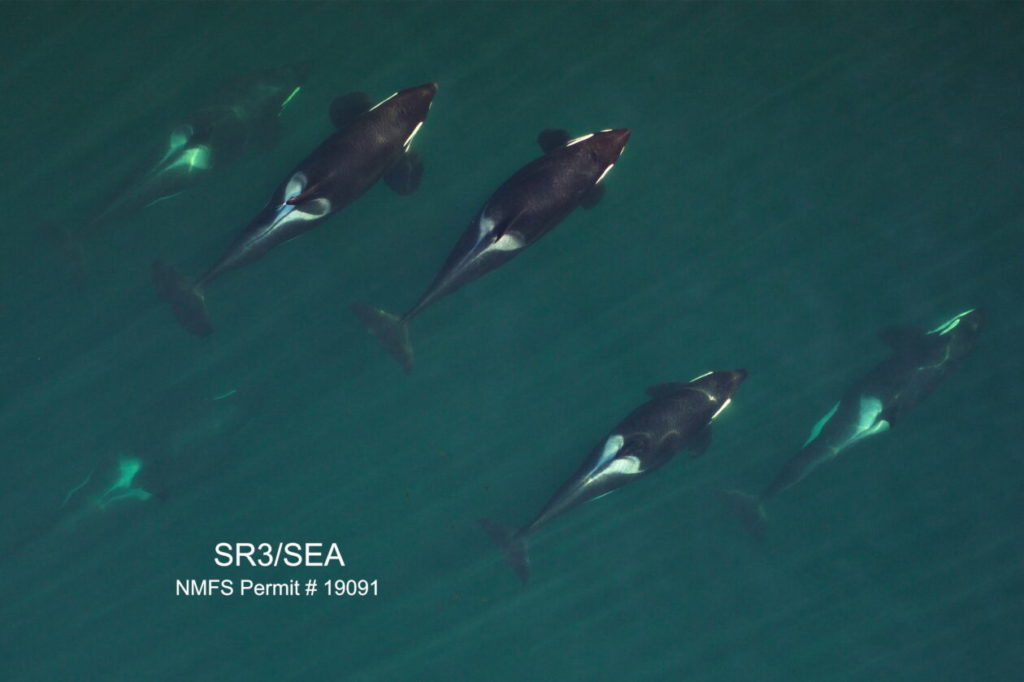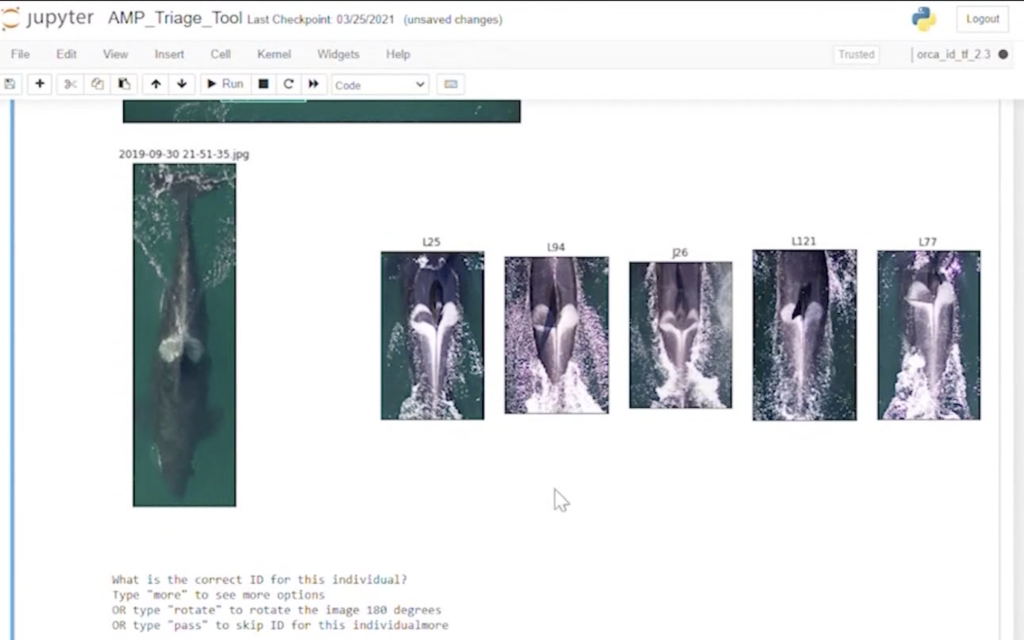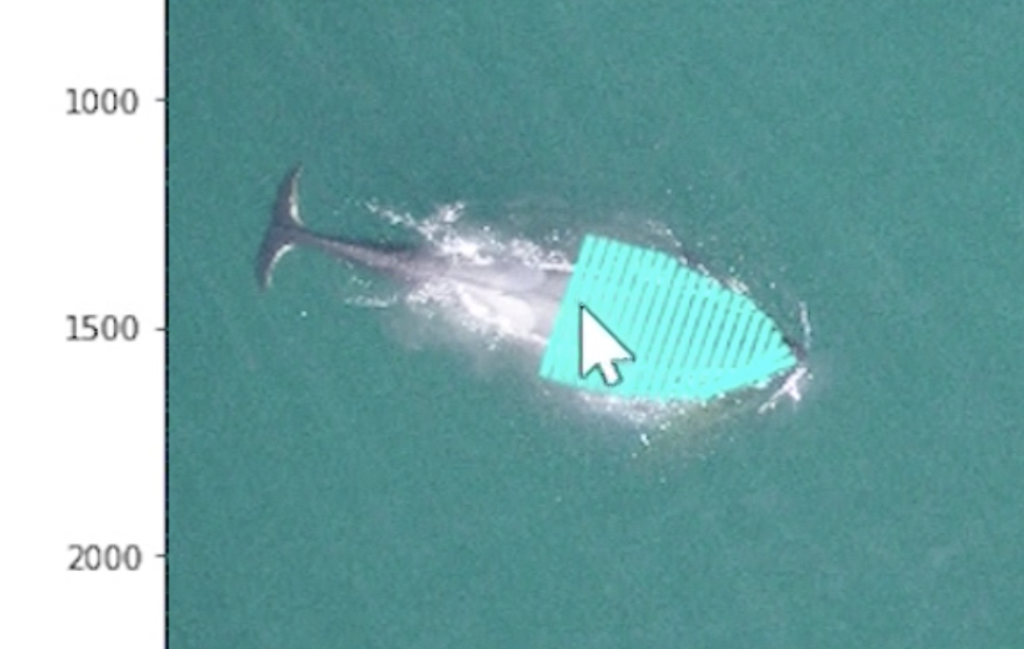Over last weekend, King 5 covered an exciting recent advancement in technology used to monitor health metrics for the endangered Southern Resident Killer Whales (SRKWs).
A blog post on the Vulcan, Inc. web site explains how they have developed new artificial intelligence (AI) that is speeding the analysis of overhead photographic images of orcas acquired with a drone by Sealife Response, Rehabilitation, & Research (SR3) operating in Washington under a research permit from NOAA. A manual process of identifying optimal images and measuring a suite of quantitative health metrics that used to take 6 months, now takes only 6 weeks.

The new tool uses four different machine learning models to detect an orca in the image, outline it, recognize its features and orientation, and then make a suite of measurements like body girth that are used to compute killer whale health metrics. With additional training, the underlying four machine learning models may reduce analysis time to mere days.
You can learn more about the project at this Geek Wire piece. Interestingly, the end of the article mentions Vulcan’s plans to open-source the code for the project, the “Aquatic Mammal Photogrammetry Tool” (AMPT). According to machine learning team manager at Vulcan, Sam McKennoch, this is in part so that the technology may be applied to studying and conserving other marine mammal species, like “other killer whale populations, different large whales, and in time, possibly smaller dolphins and harbor seals.”


